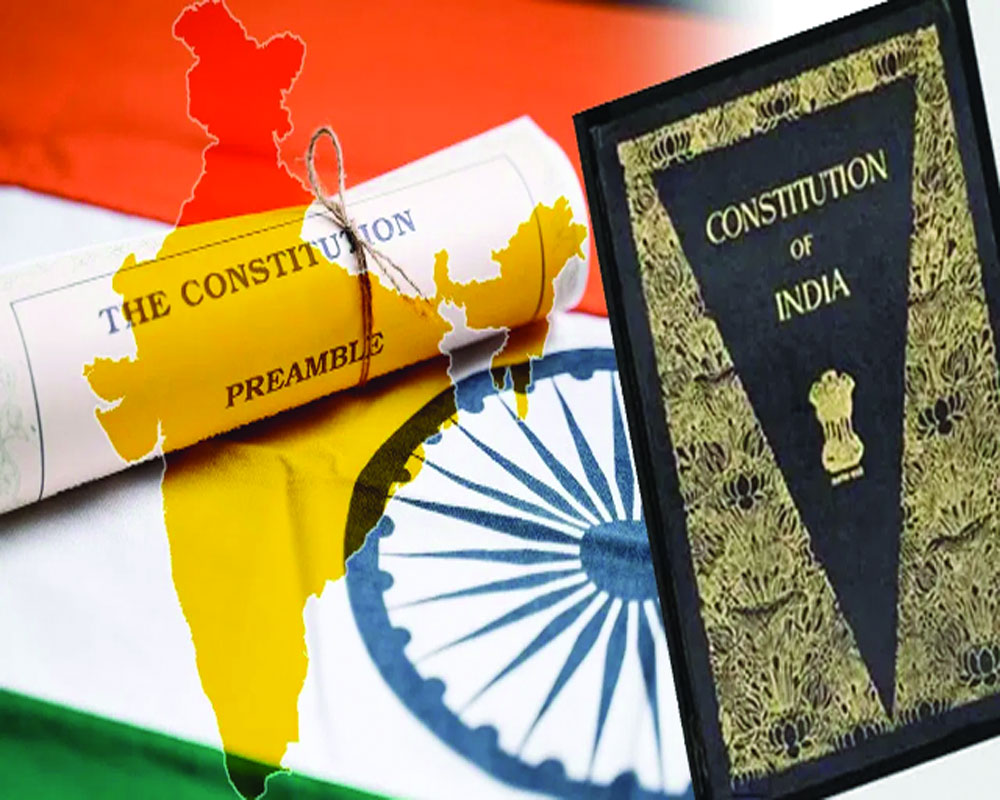Changing names have their pros and cons but the question we must ask is: Would this change have a significant impact on people's lives?
The well-known quote from Shakespeare's Romeo and Juliet, "What's in a name? That which we call a rose, by any other name, would smell as sweet," is frequently referenced about name change. It is true of the ongoing debate about India's official name change to Bharat. Regardless of the title employed, it remains the same nation.
The country currently has two names. The Indian government now officially recognises the English name "India" for global use and the Hindi name 'Bharat' for use within the country. Is it necessary for India to alter its official name to Bharat? Would this change have a significant impact on people's lives? Is calling India Bharat more advantageous to people's lives? People are often used to the old name like Chennai continues to be called Madras and Mumbai as Bombay.
The RSS, the ideological parent of the BJP, has always insisted on calling the country Bharat. "At times, we use India so those who speak English will understand. But we must stop using this. The name of the country Bharat will remain Bharat wherever you go," RSS chief Mohan Bhagwat said recently.
The President of India, Droupadi Murmu, recently hosted a dinner for G20 world leaders. During the event, she called herself the "President of Bharat" instead of "President of India." Similarly, Prime Minister Narendra Modi referred to himself as the "Prime Minister of Bharat" during his recent trip to Indonesia. These actions have led some people to believe the government may consider changing the country's name. A special Parliament session has been announced from September 18 to 22, which suggests that a Bill proposing the name change may be introduced soon. Implementing such a measure could have both domestic and global repercussions.
In 1949, the Constitution makers discussed the name of the new country. Various options, including 'Bharat', 'Hindustan', 'Hind', 'Bharatbhumi', and 'Bharatvarsh', were considered. Finally, they agreed that "India, that is Bharat, shall be a Union of States," the country's official name as stated in Article 1(1) of the Indian Constitution.
The term "Bharat" is associated with promoting Hindu identity as a part of a broader ideological framework. It originates from the Hindu scriptures and refers to the Indian subcontinent. This term can be traced back to the Puranas and the Mahabharata, where a well-known king named 'Bharat' played a significant role. Although Greek historians and European colonizers commonly referred to India as "India," the term "Bharat" has a rich history deeply rooted in Hindu mythology.
It's not uncommon for names of people, streets, cities, and countries to change due to factors like governments or geopolitics. For example, Sri Lanka, Myanmar, and Iran have all undergone name changes. Even many Indian cities, like Allahabad (now Prayagraj), Bombay (now Mumbai), and Madras (now Chennai), have had their names changed. The BJ. has renamed various cities and places associated with the Mughal and colonial periods. For instance, the Mughal Garden at the Rashtrapati Bhavan was renamed Amrit Udyan.
Changing a name has its pros and cons. Politically, some speculate that the name change was an attempt to weaken the new Opposition group, INDIA.
The Opposition argues that India is a globally recognised democratic, secular and diverse nation that encompasses its modern history and reminds us of its struggle for independence from British colonial rule.
In the past, there have been failed attempts to change the name through legislation. Shantaram Naik, a member of Congress, introduced two private member Bills in Parliament in 2010 and 2012, calling for only Bharat as the official name. Yogi Adityanath, the current chief minister of Uttar Pradesh, also supported the proposal as an MP. He suggested that "India that is Bharat" should be replaced with "Bharat which is Hindustan. In 2015, the Chief Justice of India, TS Thakur, declined the proposals when the court considered the issue. In 2020, the court dismissed a similar case. The court stated that the country's triumphant synonym is Bharat, and Hindustan is its home name." Bharat is where we dream, and Hindustan is where we live,” the court interpreted.
It's worth noting that changing a country's name is a bigger deal than renaming streets and cities. The Modi government is hurrying to name change, but it will likely be smooth. The Bill needs approval from Parliament's special session from September 18 to 22 before the states can ratify it. A two-thirds majority vote in the Lok Sabha and Rajya Sabha is necessary to pass.
The approval process is expected to be smooth, thanks to the NDA. majority. Secondly, The United Nations must accept the name change as the country is known as the Republic of India. But this will be fine, as media reports say the UN will agree. Step three will be taking care of practical matters like updating official documents, currency, and international agreements is essential. Then, you can move on to the remaining steps. In any case, it is known as Bharat Sarkar in Hindi records. Also, if the name change happens, Modi will be the first Prime Minister of Bharat.
(The writer is a popular columnist; views expressed are personal)


























